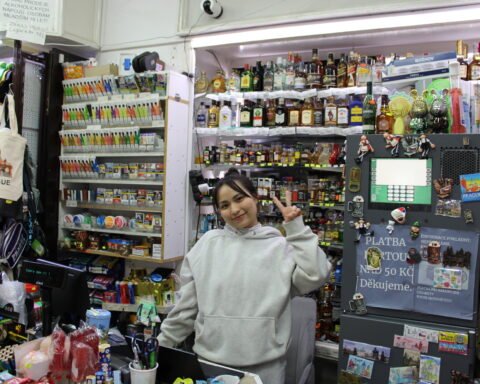A deepening housing shortage has pushed Czechia to the top of Europe’s unaffordability rankings for homeownership, according to the Czech Tenants’ Association.
The current supply of apartments falls short of demand by 88,000 units, according to developer Central Group, leading to intense competition among renters.
“I expect young people to protest in the streets … for affordable renting but this surprisingly rarely happens in Prague,” said Martin Lux, a researcher at the Institute of Sociology at the Czech Academy of Sciences.
Rental prices have increased 50% in the last five years, yet average wages have only risen 21%, according to an analysis by Arnika.
Although average incomes in Prague exceed those in other regions of Czechia, one-fourth of the population spends 40% of their income on rent. In other regions, rent accounts for just 20% of the average income.
“You’re either stuck sharing a place with six people that’s infested with bedbugs, or you have to pay elaborate prices for a nice room,” said second-year journalism student Monica Sterbet.
The Social Democratic Party listed a fake advertisement in February for a basement apartment costing 6,000 Czech koruna. The listing targeted students and young people to highlight the extremes of the current market in Prague. The advertisement received hundreds of inquiries despite the conditions. The pictures below were of the listed apartment.
Photos from Expats.cz
When apartment hunting, Josef Stanko, head of research at Colliers, advised students to “be prepared and act quickly.”
However, for international students, finding accommodation outside dorms can be difficult due to visa requirements, said Clara MacPherson, housing director at Anglo-American University.
Sterbet further explained that as an international student, not knowing the market and language makes finding accommodation even more difficult.
In Prague, the housing market is dominated by small units, which are more cost-effective for landlords. This, however, intensifies competition for the larger apartments that students tend to prefer for sharing.
“I contacted hundreds of realtors and only heard back from two,” said third-year business student Neha Pande.
The increasing apartment costs are contributing to trends of deurbanization, specifically among young residents, according to analysts from Česká spořitelna.
The limited housing supply is caused by “inflexible urban planning, lack of construction workers, housing market failures, oligopolization in the building industry and land speculation,” said Lux.
According to Stanko, Prague’s current zoning plans are about 20 years old and largely outdated. A new zoning plan, expected to take effect next year, is currently in development.
“It can easily take 10 years to get permits, and after that, another two years to complete the construction,” said Stanko. “One of the biggest issues is that people oppose construction near their homes.”
Stanko explained that while reforms are underway, it will likely take years before enough new apartments are built to meet the demand.












